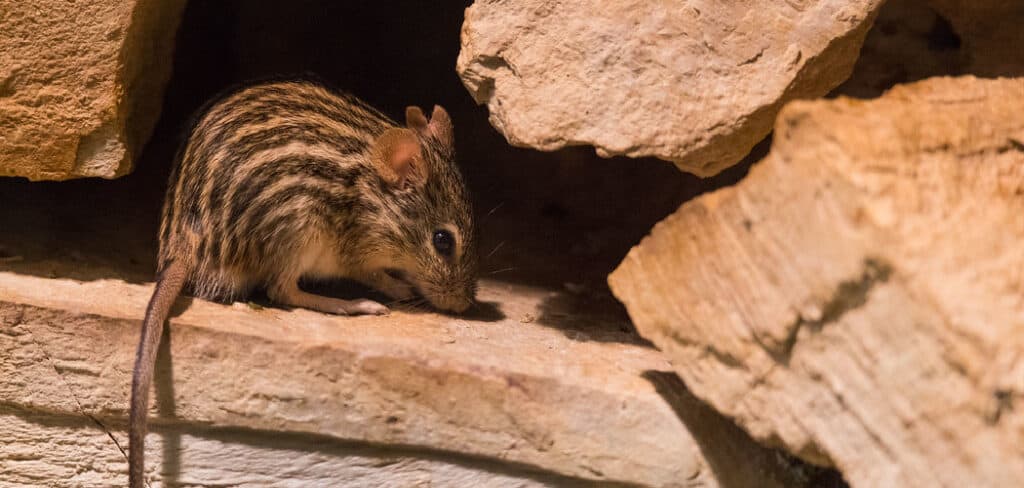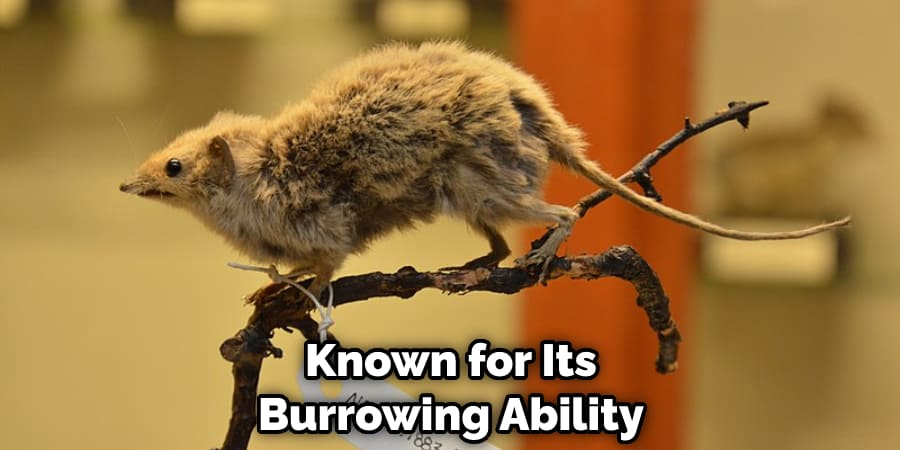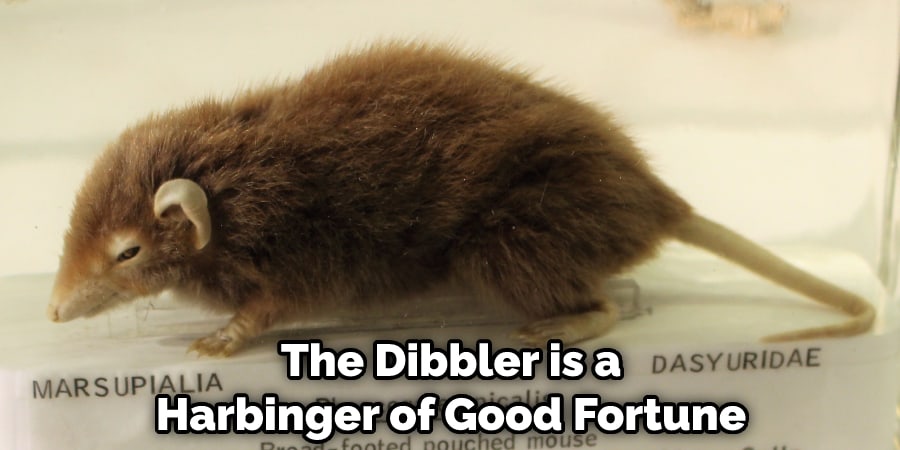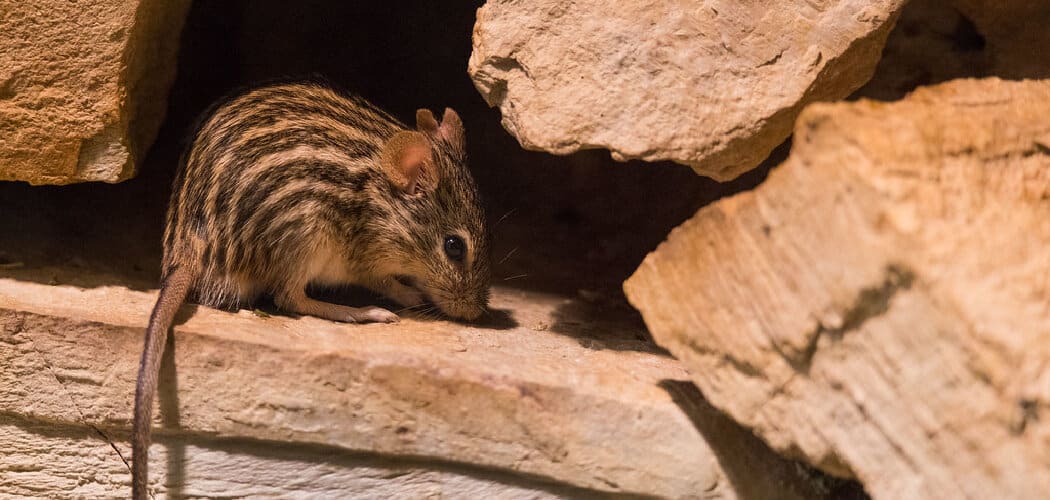Have you ever seen the dibbler and wondered what it meant? This little creature has a surprisingly deep spiritual meaning, which is often overlooked. In this blog post, we’ll explore the dibbler spiritual meaning and how it can help us connect with our inner selves. Stay tuned to learn more!

Dibbler Symbolism and Meaning
Dibbler Native Australian Symbolism
The dibbler is a small, burrowing marsupial found in Australia. The name “dibbler” comes from the Aboriginal Australian word for this animal, which is thought to be derived from an onomatopoeic sound that the dibbler makes as it digs its burrow.
The dibbler is significant in Aboriginal mythology and is often seen as a fertility and new life symbol. In some stories, the dibbler is said to be the first creature to emerge from the Dreamtime, and its burrows are thought to be pathways between the physical world and the spirit world.
The dibbler is also associated with rain, which is essential for fertility in the arid Australian landscape. For these reasons, the dibbler is important in Aboriginal culture and symbolism.
Dibbler Eastern Symbolism
The dibbler is a small, burrowing marsupial found in eastern Australia. While its physical appearance is not particularly striking, the dibbler has been endowed with a great deal of symbolic significance by Aboriginal Australians.
For many tribes, the dibbler symbolizes fertility and abundance, and its burrows are seen as conduits between the world of the living and the spirit world. The dibbler is also closely associated with rain, as wet weather often accompanies its arrival.
In some eastern cultures, the dibbler is considered a sacred animal and plays an important role in ceremonies and storytelling. As such, the dibbler occupies a unique place in eastern culture.

Dibbler Christianity Symbolism
Christianity has always been a religion with a strong emphasis on symbolism. From the early days of the faith, Christians have used symbols as a way to represent their beliefs. One of the most common symbols is the dipper, which is often used to represent the Holy Spirit.
The dipper is usually portrayed as a white dove, with its wings spread wide, symbolizing the all-encompassing nature of the Spirit. Christians believe that the Holy Spirit is a vital part of their faith and that it helps to guide them on their journey.
The dipper symbolizes the Spirit’s guidance, and its white color represents purity and peace. Christians often use the dipper as a way to remind themselves of the importance of following the Spirit’s lead.
Dibbler Celtic Symbolism
The Celtic dibbler is a small rodent-like creature found in the British Isles. It is a member of the family Cricetidae and is closely related to the brown rat.
The dibbler’s name comes from digging small holes in the ground, which it uses for nesting and storing food. The dibbler is a shy and timid creature, but it is also known for its boldness when defending its territory.
In Celtic mythology, the dibbler is associated with courage and strength. It is said that the dibbler will fight to the death to defend its home and its family. The dibbler is also associated with fertility and abundance. In Celtic folklore, the dibbler is sometimes known as the ” Old Woman’s Child.”
This is because the dibbler is believed to be able to reproduce at a very rapid rate. As a result, the dibbler represents both the cycle of life and death and the cycle of growth and decay. The dibbler is also associated with luck.
In some parts of Britain, it was once believed that catching a glimpse of a dibbler would bring you good fortune. Today, the dibbler remains a popular symbol of Celtic culture and tradition.
Dibbler African Symbolism
In Africa, the dibbler is a small mammal that is known for its burrowing ability. The dibbler is also a popular symbol in African cultures. In some cultures, the dibbler is seen as a positive symbol of change and new beginnings.

In other cultures, the dibbler is seen as a negative symbol of darkness and death. However, the dibbler is important to African wildlife and culture regardless of its symbolism.
You Can Check It Out To Gundi Spiritual Meaning, Symbolism and Totem
Dibbler Spiritual Meaning
The dibbler is a small, spiny creature found in the deserts of the southwestern United States. Although it is not particularly attractive, the dibbler has been revered by many Native American cultures for its ability to bring rain.
According to legend, the dibbler burrows into the sand and collects water droplets in its spines. Then, when the spines are full, they burst and release the water into the air, creating clouds that bring rain to the parched land.
For many Native Americans, the dibbler is a powerful symbol of hope and abundance. In times of drought, the dibbler reminds us that there is always enough water for everyone if we are willing to share.
It reminds us that we are all connected and must work together to care for Mother Earth. So, the next time you see a dibbler, take a moment to appreciate its beauty and its message. Who knows? Maybe it will bring you some much-needed rain!
Dibbler in Dreams
The dibbler is a small, nocturnal creature that is found in the forests of central and southern Africa. It is a member of the rodent family, and its closest relatives are the gerbils and mice. The dibbler is a shy and elusive creature, and very little is known about its habits or biology.
However, it is often mentioned in folktales and legends, where it is said to bring good luck. Furthermore, in some cultures, it is believed that seeing a dibbler in your dreams can foretell future success.
Whether or not this is true remains to be seen, but one thing is certain: the dibbler is a fascinating creature and one that continues to capture our imaginations.
Dibbler Encounters and Omens
Dibbler encounters are considered to be very rare and significant events. The creature is so shy that it is said to only come out of hiding when someone is about to experience a great change in their life. For this reason, dibbler sightings are often considered to be omens.
Some believe that the dibbler is a harbinger of good fortune, while others believe that it is an omen of bad luck.

However, most agree that dibbler encounters are powerful signs that should not be ignored. Whether you interpret a dibbler encounter as good or bad, it is important to take note of the event and be prepared for whatever may come your way.
Dibbler’s Meaning in Mythology and Folklore
In many cultures, the dibble is seen as a symbol of fertility and abundance. In some Native American tribes, for example, the dibble is associated with the corn goddess responsible for bringing new life to the world.
The dibble is also a popular motif in ancient Egyptian art, often appearing alongside other fertility symbols such as the Nile river and the Eye of Horus.
In China, the dibble is sometimes known as the “money tree” due to its similarity to coins. This association likely stems from the fact that trees were traditionally seen as symbols of abundance and prosperity.
Consequently, the dibble has come to be seen as a talisman of good luck and fortune. But, whether you view it as a symbol of fertility or good fortune, there’s no denying that the dibble has a long and rich history in mythology and folklore.
Dibbler Totem Animal
The dibbler is a small, burrowing marsupial with a long snout and furry ears. They are shy and nocturnal creatures found throughout Australia that are most often seen at night. While they are generally solitary animals, dibblers sometimes share their burrows with other species members.
In Aboriginal mythology, the dibbler is often associated with the dreaming track or the path that the spirits follow as they travel between the worlds. This connection to the spirit world makes the dibbler a powerful totem animal for Aboriginal people.
Dibblers are also known for their strong digging ability, and this trait is often used as a metaphor for overcoming obstacles in life. For Aboriginal people, the dibbler is a source of strength and inspiration.
Dibbler Tattoo Meaning
The dibbler tattoo is a popular choice for both men and women and has various meanings. For some, the tattoo represents new beginnings or a fresh start in life. The dibbler is a native Australian creature known for its burrowing ability, which can symbolize the wearer’s desire to start anew.
Others choose the dibbler tattoo because of its connection to the sun. In Aboriginal mythology, the dibbler is said to be the offspring of the sun god, and the tattoo can represent strength, power, and courage. Whatever the meaning, the dibbler tattoo is a beautiful and popular choice.
Conclusion
The dibbler is a powerful spiritual totem that symbolizes courage, protection, and persistence. Its presence in our lives encourages us to be brave and to follow our dreams. The dibbler’s spirit animal vibration teaches us to take the necessary risks and persevere even when things may seem impossible.
As with all animal totems, the dibbler will show up in our lives when we need it most, so be on the lookout! With its strength and guidance, you can begin to move forward with confidence. Thanks for reading our post about the dibbler spiritual meaning.
You Can Check it Out Dunnart Spiritual Meaning, Symbolism and Totem

